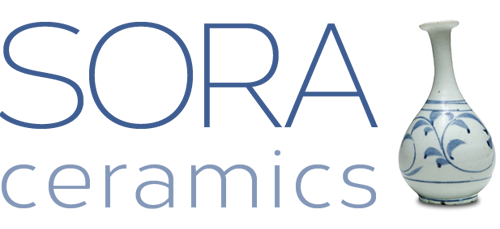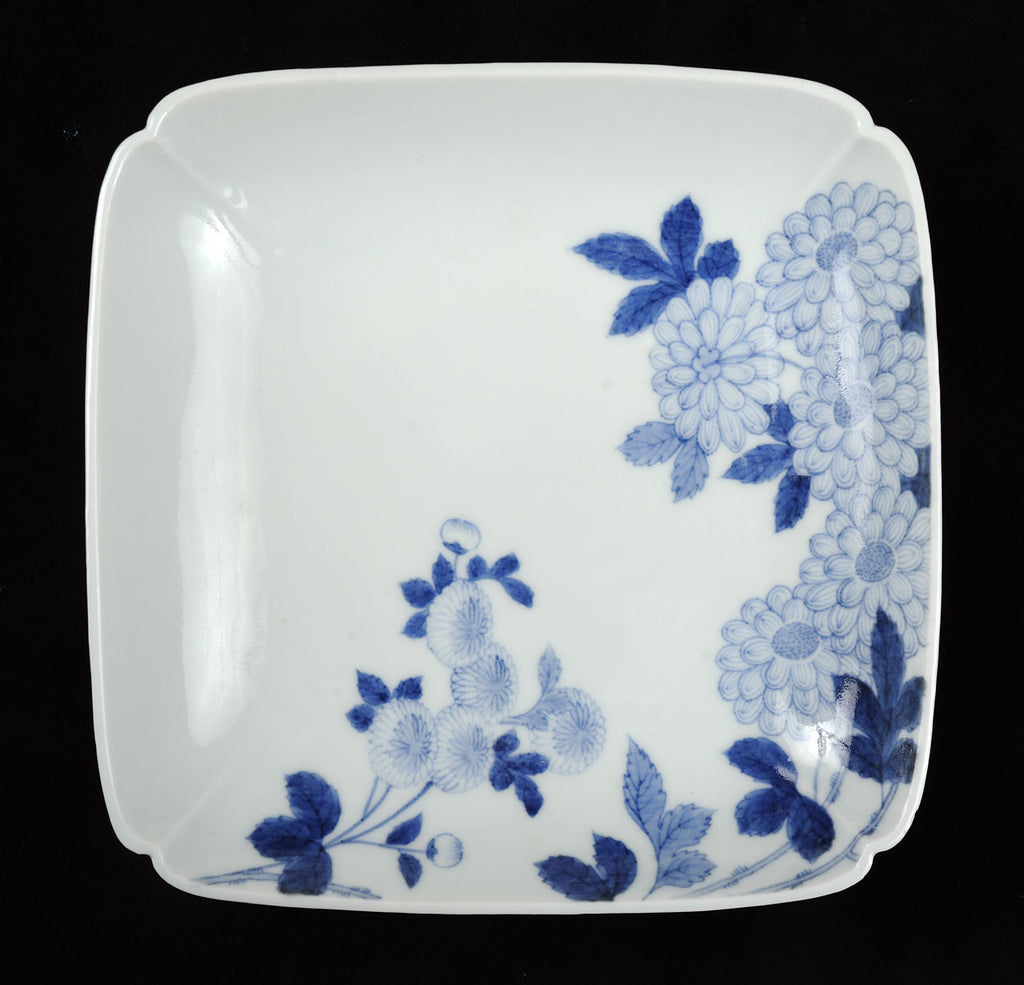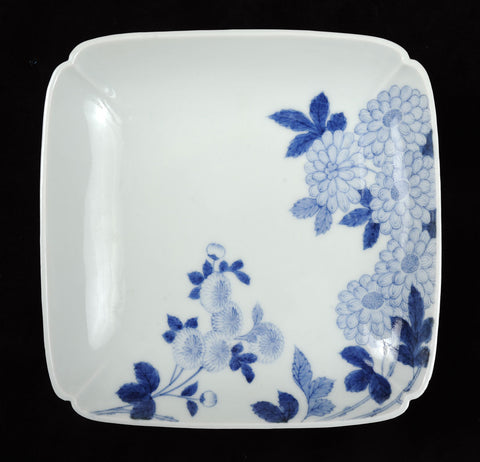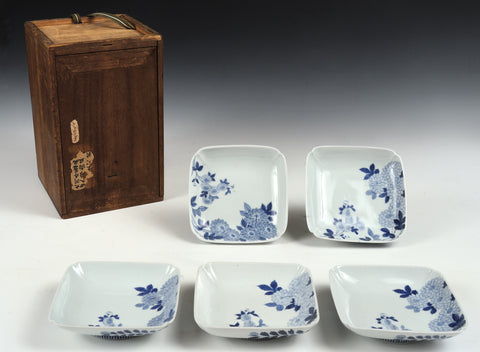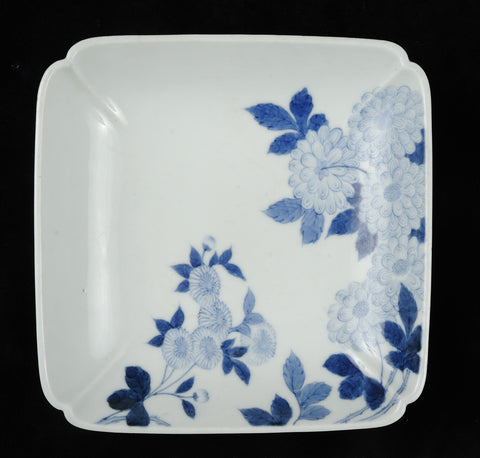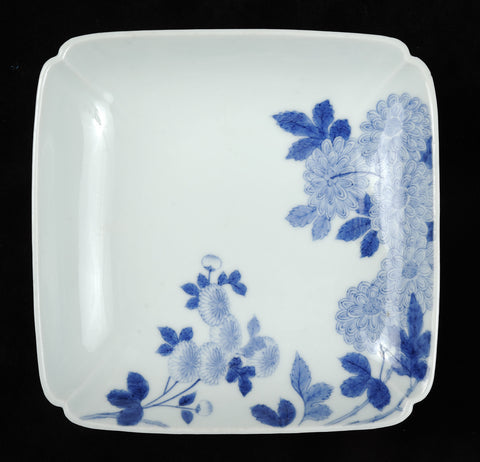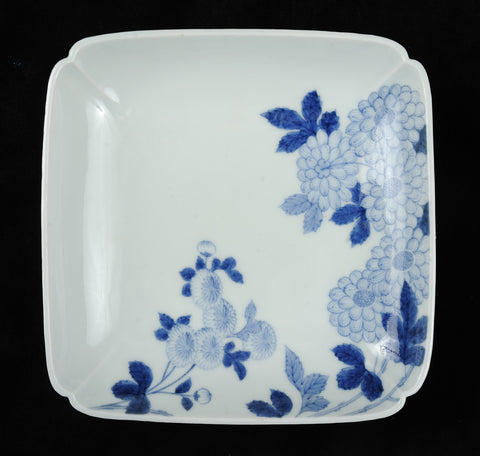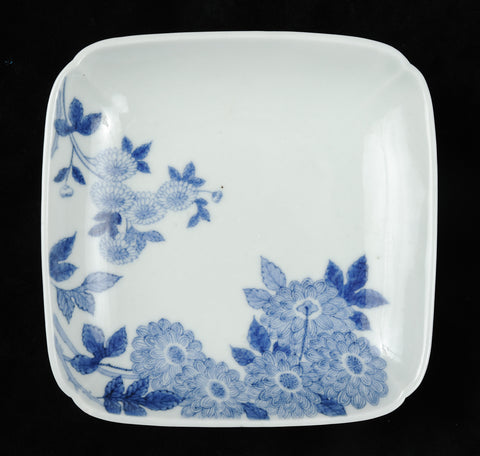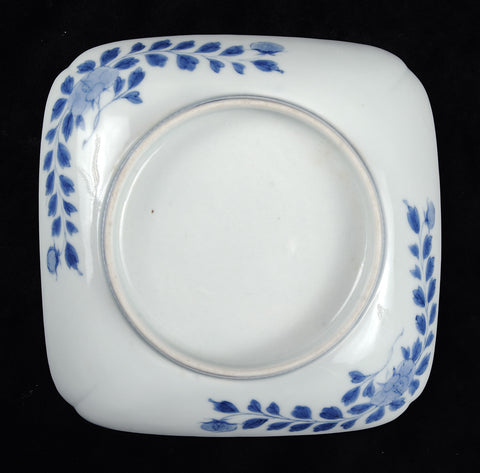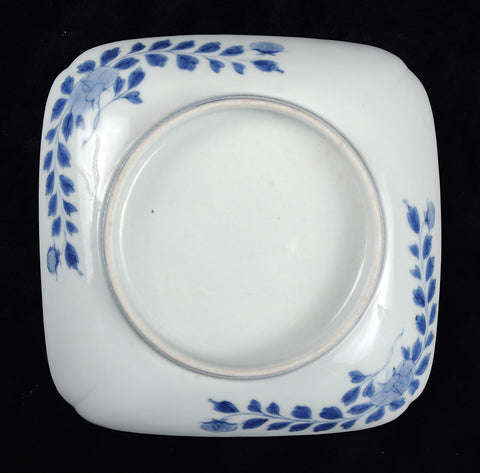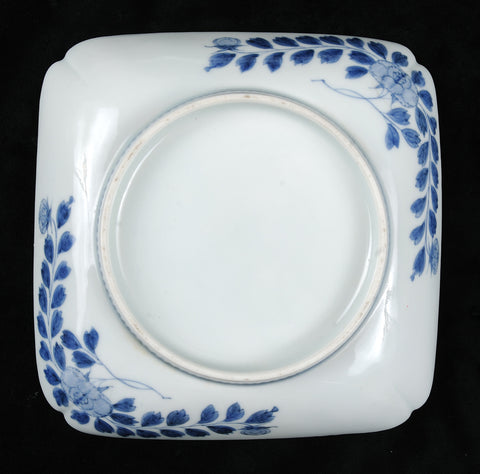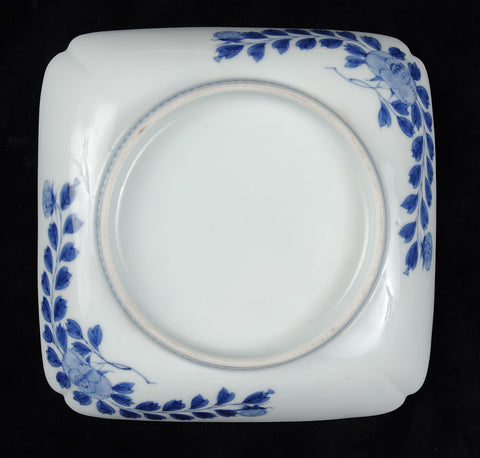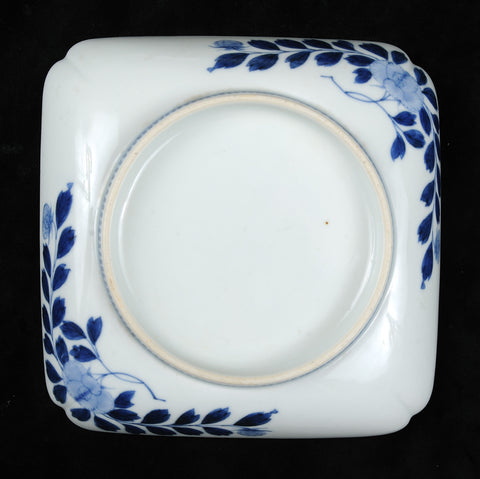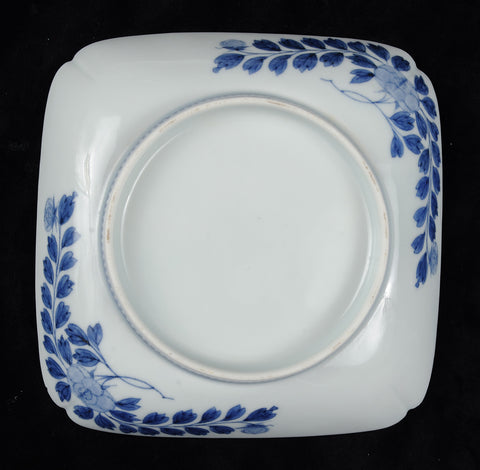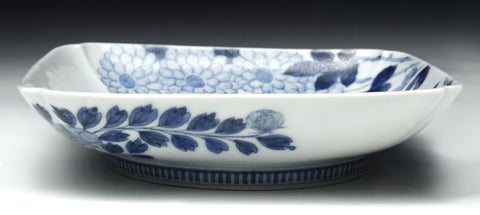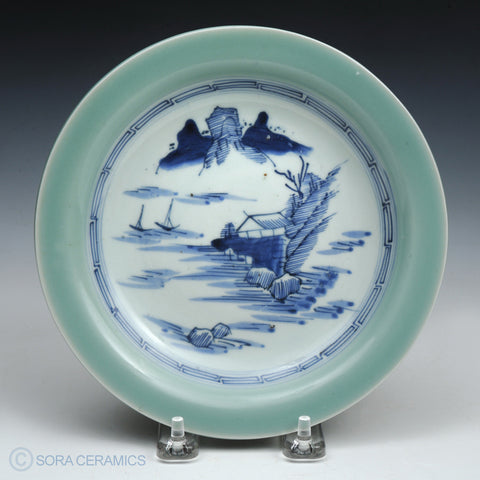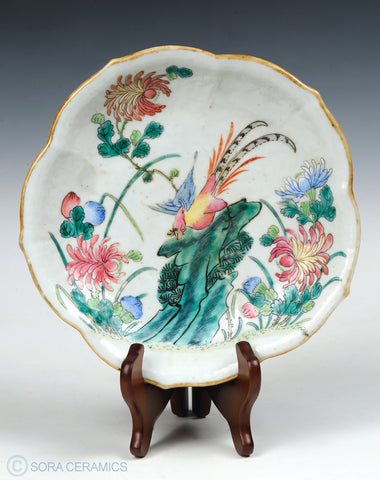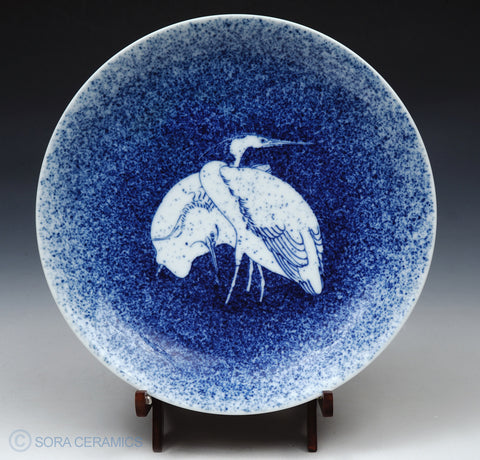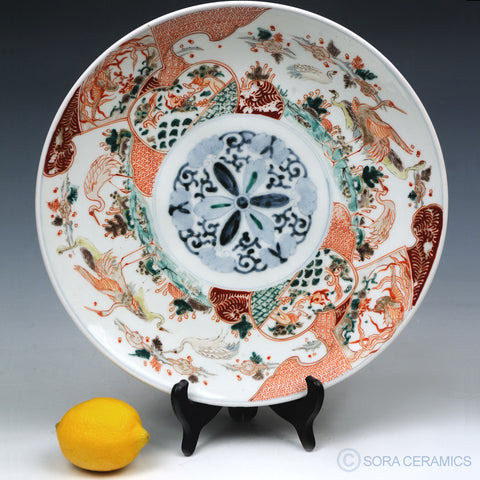Nabeshima dishes
$ 10,000.00
Five, pristine Nabeshima porcelain plates of exquisite quality and significance in a set. Nabeshima porcelains were never sold but produced exclusively for presentation to nobility, including the Shogun and Emperor. As Motosuke Imaizumi puts it in “Famous Ceramics of Japan No.1, Nabeshima” (Kodansha, 1981), “Today, Nabashima pieces are regarded as masterpieces of ceramic art, displaying the highest technical excellence, and are treasured by collectors throughout the world.”
These plates embody such standards in fine white porcelain, decorated in subtle pale and deep blue underglaze with delicately painted clusters of chrysanthemum buds, blossoms and leaves. The exterior echoes the leaves with unopened buds at the corners. The raised foot, 4” in diameter, is meticulously decorated in a Nabeshima hallmark: the storied comb-tooth pattern—precise, evenly-spaced blue strokes in unaided free-hand. According to The Kyushu Ceramics Museum’s 2006 publication “Nabeshima; Porcelain for the Shogunate” the design sample for these plates was one of twelve designs approved by the tenth Shogun, Ieharu, in 1773, and porcelains based on the samples continued to be produced until the end of the Edo period. See id at p.269, and color photos at p. 193 (scanned copy available on request).
Imaizumi again: “Given the technical level of the day, the yield rate of successfully fired pieces must have been less than 50 percent. Flawed pieces were all buried. Each piece demanded so much handiwork that any kind of mass production must have been completely out of the question. This makes it possible to speculate that far fewer pieces may have been produced than has been supposed. It is precisely this rarity that explains the jealousy with which the few surviving pieces have been treasured.” (id, p.11)
Our acquisition was with permission of the Ministry of Culture of Japan. Survival of this set of five plates intact implies high provenance and preservation within devoted homes. The set includes antique wooden box. Each plate, a “7-sun” square with inward-eased, creased, tapering corners: 6-1/4” each side x 1-1/2” deep. Edo period, probably 1840-45. The set $10,000
| 鍋島染付7寸角皿5枚(共箱) |
